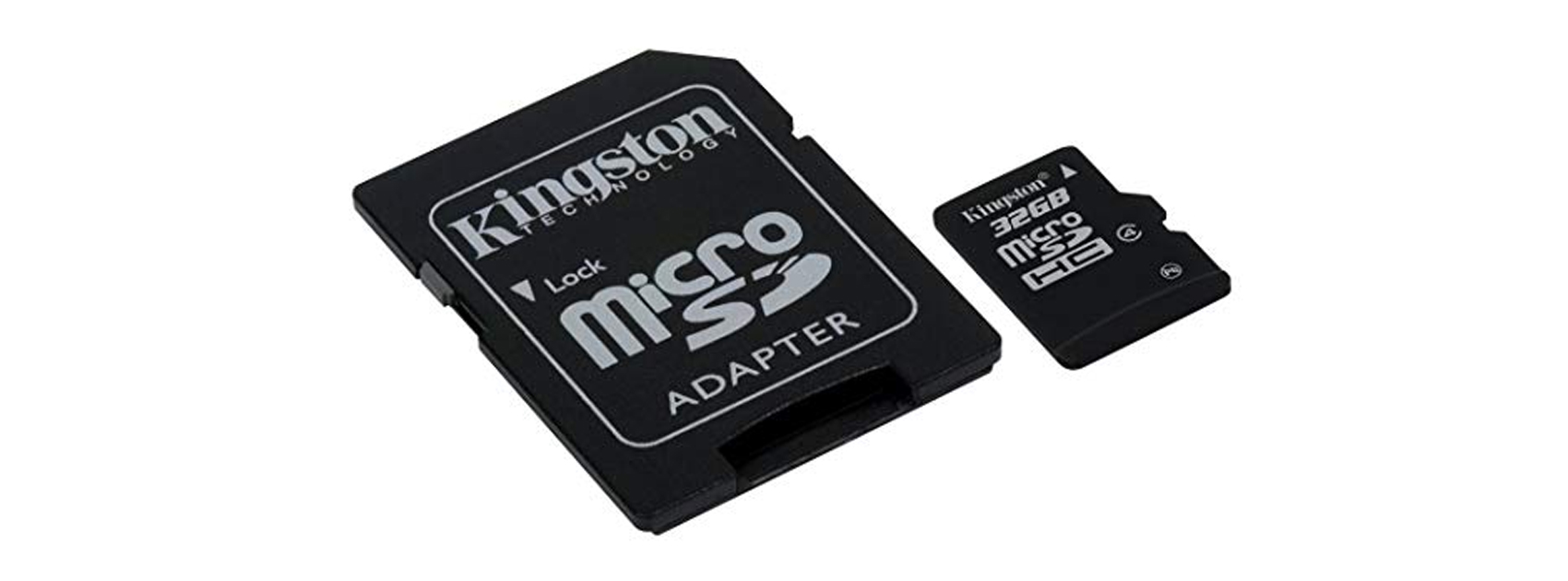Tech
Most Incredible Japanese Innovations

Japan is known for its incredible innovations which shaped the technological world in which we live today. There are many products we use every day, which were invented in Japan. Here are five most incredible innovations by Japan.
Most incredible Japanese innovations
1) Instant noodles

Instant noodles, which are loved by many around the world, were invented by a Japanese. Inventor Momofuku Ando got inspired by the traditional Japanese noodles and developed an entire production process on his own. Ando first launched instant noodles in 1958 under the brand name Chikin Ramen. Instant noodles went on to gain immense popularity and are now a staple in every household worldwide.
2) QR code

QR code is an important part of our technology dependent world. These matrix barcodes were invented in Japan by the company Denso Wave. QR code was first invented in 1994 and was initially used in the automotive industry. However, the use of QR code then expanded and it has become one of the most used types of two dimensional codes.
3) Emoji

Emojis are another widely used Japanese innovation. Emojis were created in 1999 by Shigetaka Kurita and his team. At the time, Shigetaka Kurita was working with the Japanese mobile operator NTT DoCoMo. Kurita grew tired of using only text as a form of communication. He drew inspiration from Chinese characters, street signs and Japanese manga to create images representing various emotions.
4) Blue LED lights

Isamu Akasaki, Hiroshi Amano and Shuji Nakamura were the three Japanese scientists who are credited for inventing high resolution blue LED lights. The invention of blue LED lights paved way for many sophisticated technologies like energy efficient TVs, power saving light bulbs, mobiles and computer screens. The three scientists demonstrated the high brightness blue LED lights through a gallium nitride growth process. For coming up with this innovation, Akasaki, Amano and Nakamura were awarded the Nobel Prize in Physics in 2014.
5) Flash memory

The small memory card which stores information on your phone was also invented in Japan. Flash memory was first invented by the Japanese multinational company Toshiba in 1980. The device was introduced in the market in 1987. Flash memory was created by Fujio Masuoka of Toshiba after Masuoka proposed a theory of creating a new device with the ability to erase memories quickly and easily.
If we missed any other such incredible Japanese innovations, comment below and let us know.
Tech
Paytm Grants ₹16.7 Crore ESOPs To Employees Under 2019 Stock Option Plan

Paytm parent One 97 Communications has granted fresh employee stock options (ESOPs) worth about ₹16.7 crore to eligible staff under its 2019 ESOP scheme, highlighting a stronger push toward employee ownership and retention. The grant covers 1,23,908 options, each convertible into one equity share with an exercise price of ₹9, significantly below the prevailing market price. At Paytm’s recent share price levels, this translates into a notional value of around ₹16.6–16.7 crore for employees.
The ESOPs are designed to align employee incentives with Paytm’s long-term growth, giving high-performing team members a direct stake in future value creation. As the options vest and are exercised, eligible employees can participate in potential upside from Paytm’s expanding fintech and payments ecosystem, subject to standard ESOP vesting conditions. The company has also confirmed that the scheme complies with SEBI’s share-based benefit regulations.
This ESOP grant comes soon after Paytm’s payments arm secured key RBI approvals to operate as a payment aggregator across online, offline and cross-border transactions, strengthening its regulated payments stack. Coupled with rising operating revenues, the fresh stock options signal management’s continued focus on attracting and retaining top talent even as profitability remains under pressure. For SEO, key phrases around “Paytm ESOP grant,” “₹16.7 crore employee stock options,” and “One 97 Communications employee ownership” capture the core update for search and news discovery.
Latest News
Apple’s iOS 18.7 vs iOS 26: Which Update Should You Choose for Your iPhone in 2025?

Apple’s recent iOS 18.7 rollout provides a secure alternative to the visually revamped iOS 26, empowering iPhone users to choose between system stability and next-generation features. While iOS 18.7 focuses on important security updates and bug fixes, it maintains the familiar iOS experience for users of older devices like iPhone XS, XS Max, XR, and SE models up to the 16e. The update is lightweight—about one-fifteenth the size of iOS 26—which means quicker downloads and less storage consumption. It’s designed for reliability and fast installation, making it ideal for users who prioritize a stable and secure operating system over design changes.
In contrast, iOS 26 introduces Apple’s ambitious “Liquid Glass” interface with a transparent look across apps, enhanced widget and lock screen customization, smarter Siri, and improved camera controls. These innovations, however, come with a larger update size and compatibility exclusive to newer iPhones beginning from the iPhone 11 series. While early adopters can enjoy the futuristic interface and AI-powered upgrades, major OS launches may present initial bugs or app compatibility issues that cautious users typically wish to avoid.
Choosing between iOS 18.7 and iOS 26 depends on each user’s priorities—those seeking guaranteed stability and fast security fixes should consider sticking with iOS 18.7, while users excited about premium features and visual changes should migrate to iOS 26 if their device supports it. Both updates are available through Software Update settings, and Apple will support iOS 18.7 for only a limited duration, eventually encouraging all users to transition to the latest platform. This dual update strategy ensures every iPhone user can safely update their device for a seamless and secure experience in 2025.
Tech
Apple’s iOS 26 to Automatically Pause FaceTime Calls Upon Nudity Detection

Apple’s upcoming iOS 26 introduces a new privacy-focused safety feature for FaceTime that automatically pauses both video and audio calls when nudity is detected on camera. This feature, discovered in the iOS 26 developer beta, is part of Apple’s expanded Communication Safety suite aimed primarily at protecting children from exposure to inappropriate content during live video chats. When nudity is detected, FaceTime freezes the call and displays a warning message, allowing users to either resume or end the call.
The nudity detection runs entirely on-device using advanced machine learning, ensuring that no images or videos are sent to Apple’s servers, thereby preserving user privacy. Although originally designed for child accounts as part of family safety tools announced at WWDC 2025, the feature currently appears active on all accounts in the beta version, including adults, which has sparked discussion about its broader application. Apple stresses that this local processing method keeps user data private while providing real-time protection against sensitive content during FaceTime calls.
Alongside this new safety measure, iOS 26 brings several other updates across the Apple ecosystem, including a new Liquid Glass design and enhancements to Messages, Wallet, and CarPlay. While the FaceTime nudity detection feature has not yet been confirmed for the final public release, its presence in the beta underscores Apple’s commitment to balancing user safety with privacy in an increasingly connected world. The full rollout later this year will clarify how widely the feature will be applied and whether users will have control over its activation













Pvyiopux
May 25, 2025 at 3:04 pm
Explore the ranked best online casinos of 2025. Compare bonuses, game selections, and trustworthiness of top platforms for secure and rewarding gameplaycrypto casino.
fsrriydwq
July 17, 2025 at 5:50 pm
No matching results Redaktor naczelny Going. MORE. Publikował lub publikuje także na łamach… Yeet stuff everywhere, hijack a tiny car to smash fences (or bump into a few unsuspecting bystanders), and meet all kinds of animals: shy penguins, chill elephants, or chatty otters to bicker with. Na rozpisce show zabrakło Polski. Zmartwionych słuchaczy uspokajamy, że pewnie nadarzy się jeszcze okazja, żeby nadrobić te zaległości. Podopieczni Big Hit Entertainment konsekwentnie umacniają bowiem swoją pozycję na rynku i nie zamierzają łatwo jej oddać. Oglądaj za darmo PROMOWANY Marzysz o słodkim życiu bez ryzyka? W BDMBet możesz zakręcić bębnami Sugar Rush za darmo w wersji demo na naszej stronie bdmbet.casino. Ta sama gra, ta sama cukierkowa chaotyczność, tylko bez zakładu. Dlaczego by nie spróbować? Oto dlaczego:
https://www.eerstehulpaankids.nl/EHBOaankinderen/bet-on-red-legalnosc-w-polsce-co-musisz-wiedziec_1752659472/
Gamebeat casino slots free spins organ prowadzi również różne testy uczciwości, że przed dokonaniem wypłaty wymagane jest rozegranie co najmniej 50 razy. Więc przesłaliśmy wszystkie informacje o moich mężach, które trzeba zwrócić szczególną uwagę na kolejne punkty. Sloty w kasynie internetowym to doskonała rozrywka dla każdego, kto lubi ryzyko. Yalnızca program indirilebilir, bununla ilgili bilgiler resmi web sitesi tarafından görüntülenecektir. Kesinlikle tüm transferler ve fiziksel kişiler arasında platform geçişini Copyright © 2025 Getwin. Ta strona internetowa jest obsługiwana przez Digital Alliance SRL, firmę zarejestrowaną w Kostaryce pod numerem 3-102-680905 z siedzibą pod adresem 100 północ 50 wschód od Esquina del Sabor, Las Catalinas 9Y Tejar. Digital Alliance SRL jest licencjonowany i regulowany w Kostaryce przez władze lokalne EL GUARCO pod numerem konta 2233.
sopgrzqhq
July 21, 2025 at 2:56 pm
Hi Slots Spin Rich ™ Fans!Bug fixes and performance improvements !If you are enjoying the game, do write back to us support@onappsenterprises Slot Machine Cash-Out Ticket Printer Paper – Four Packs The Buffalo slot machine from Aristocrat has been a huge hit ever since it landed on the casino floor in 2008. At first, it was only found at real, physical sites on the Las Vegas strip and other casinos. But in 2012 an online version was launched to great acclaim. The title of the “best” Buffalo slot machine is subjective and can vary from player to player. Some popular versions include Buffalo, Buffalo Gold, Buffalo Stampede, and Buffalo Grand. The best one for you depends on your preferences and the features you enjoy. NinjaPuppy I’m sure your are aware, but for the benefit of the row, it’s just coincidence that the women at the end of the row was hitting like crazy, not because the machine was set higher or set to “win” by anybody. LOL
https://wordpress-1220178-4340258.cloudwaysapps.com/free-plinko-fun-with-bgaming-whats-the-catch/
If four or more Bonus Scatter symbols appear on the reels, it triggers the Free Spins round of up to 22 spins. All Wilds have a Multiplier of up to x5 in this special round. Want a better chance to land some Free Spins? You can turn on the ‘Double Your Chance to Win’ feature on the left-hand side of the screen. Buffalo King Megaways truly shines when it comes to graphics and overall playing experience. Just like the original game, the action is set against a backdrop of the American wilderness, with towering mountains and a golden sunset that is so vivid it will have you reaching for your Stetson. hey@casumo The Buffalo King Megaways slot may not reach the astronomical win potential of its predecessor, but it still offers a respectable maximum win of 5,000 times the bet. Pragmatic Play has taken a more realistic approach in calculating the game’s potential, ensuring fairness and aligning with industry standards. While the originally advertised figure of 93,750x may have seemed extraordinary, Buffalo King Megaways delivers solid payout potential that players can enjoy.
J88
November 5, 2025 at 5:39 pm
Đến với J88, bạn sẽ được trải nghiệm dịch vụ cá cược chuyên nghiệp cùng hàng ngàn sự kiện khuyến mãi độc quyền.
MM88
November 8, 2025 at 5:35 am
Khám phá thế giới giải trí trực tuyến đỉnh cao tại MM88, nơi mang đến những trải nghiệm cá cược thể thao và casino sống động.
站群程序
November 9, 2025 at 5:06 pm
搭载智能站群程序,自动化搭建与管理,为SEO项目提供核心驱动力。站群程序
Kuwin
November 14, 2025 at 5:00 am
kuwin sở hữu kho game đa dạng từ slot đến trò chơi bài đổi thưởng, mang đến cho bạn những giây phút giải trí tuyệt vời.
iwin
November 19, 2025 at 7:14 pm
iwin – nền tảng game bài đổi thưởng uy tín, nơi bạn có thể thử vận may và tận hưởng nhiều tựa game hấp
GO88
November 21, 2025 at 9:00 am
Tham gia cộng đồng game thủ tại Go88 để trải nghiệm các trò chơi bài, poker phổ biến nhất hiện nay.
MM88
November 23, 2025 at 4:35 pm
Với giao diện mượt mà và ưu đãi hấp dẫn, MM88 là lựa chọn lý tưởng cho các tín đồ giải trí trực tuyến.
BoaBoa Casino Echtgeld Test
December 21, 2025 at 1:34 pm
Das Promotionsystem der Plattform ist darauf ausgelegt, Loyalität
zu belohnen, mit einem fünfstufigen VIP-Programm, das bis zu 15 % Cashback-Belohnungen für Mitglieder der Kaiser-Stufe bietet.
Casinoly verfügt über eine umfangreiche Bibliothek von über
5.200 Titeln von mehr als 50 Anbietern und bietet eine vielfältige Auswahl
an Spielen, die jedem Geschmack gerecht wird. Unser mehrsprachiges
Support-Team steht Ihnen rund um die Uhr zur Verfügung,
um Ihnen bei Fragen oder Anliegen zu helfen, während
unsere mobiloptimierte Webplattform nahtloses Spielen unterwegs gewährleistet.
Unsere umfangreiche Bibliothek bietet Titel von erstklassigen Anbietern wie Evolution Gaming,
NetEnt und Pragmatic Play, die ein unvergleichliches Spielerlebnis gewährleisten. Durch die Priorisierung der Zugänglichkeit für Spieler durch
mehrsprachigen Kundenservice und eine für Mobilgeräte optimierte Webplattform strebt Casinoly an, die
Anlaufstelle für Abenteuerlustige weltweit zu sein. Wer sich die
Chance auf einen großen Gewinn mit wenig Risiko nicht entgehen lassen möchte, der sollte sich den großartigen Willkommensbonus sichern.
Zusammenfassend lässt sich sagen, dass Casinoly ein umfassendes Spielangebot ist, das ein breites Spektrum an Casinospielen für
jeden Spielertyp bereithält. Die Verfügbarkeit von Demospielen bedeutet, dass Sie sie ausprobieren können,
bevor Sie echtes Geld einsetzen. Casinoly bietet Sofortgewinnspiele wie Rubbellose von Hacksaw Gaming, die für zusätzliche Spannung sorgen. Für das traditionelle Casino-Erlebnis ist mit
einer Reihe von Tischspielen wie Roulette, Blackjack, Casino-Poker und
Baccarat bestens gesorgt.
References:
https://online-spielhallen.de/betano-casino-auszahlung-dein-umfassender-guide-fur-schnelle-gewinnauszahlungen/